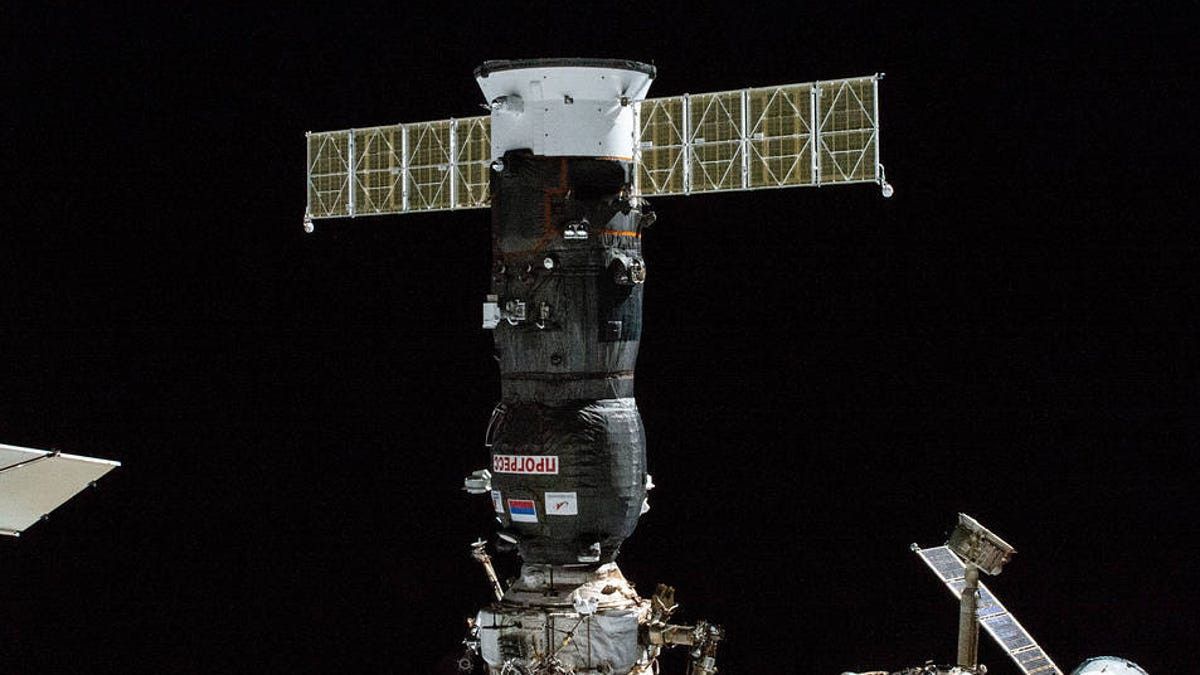JAKARTA - The Russian spacecraft docked at the International Space Station (ISS) has been leaked on Saturday morning, February 11. Dubbed Progress 82, it is slated to be dumped in Earth's atmosphere this week.
The Russian space agency Roscosmos revealed on its Telegram channel that the cargo ship Progress 82 which is now on the ISS has lost cabin pressure.
NASA later assisted its International counterparts in investigating the problem, and said the depressurization was due to a coolant leak.
"The reason for the loss of coolant on the spacecraft is being investigated. The hatch between Progress 82 and the station is open, and the temperature and pressure inside the station are all normal," said NASA in its official statement quoted Monday, February 13.
"Officials are monitoring all systems of the International Space Station and are not tracking any other issues."
It was NASA said engineers at the Russian Mission Control Center outside Moscow registered depressurization in the cooling loop of the unpiloted Progress 82 cargo ship, docked to the station's space-facing Poisk module.
NASA also emphasized that the incident did not pose any danger to the crew on the ISS.
Currently the cause of the leak is being investigated. The unmanned Progress 82 (also known as the Progress MS-21) arrived in late October last year carrying several tons of food, fuel and supplies.
Progress is not used to carry humans. Now the cargo ship is being packed for disposal where it will burn up in Earth's atmosphere on February 17th.
Most importantly, the crew consisting of three NASA astronauts, one Japanese astronaut, and three Russian cosmonauts survived the incident.
This is the second such incident in recent months after the Soyuz MS-22 spacecraft also owned by Russia and aboard the ISS spewed coolant from a leak in December last year.
VOIR éGALEMENT:
The leaked Soyuz MS-22, determined by NASA and Roscomos to be unfit to bring the crew back to Earth, necessitated a new plan to bring home NASA astronaut Frank Rubio and Russian cosmonauts Sergey Prokopyev and Dmitry Petelin.
The two then laid out plans to deliver the new Soyuz this February and deploy the unmanned Soyuz MS-22. NASA and Roscomos suspect a micrometeorite or small space rock may have caused the leak.
Leaks on the Progress 82 cargo plane are not as worrisome as the Soyuz leaks, but the combination of the two being so close together is likely to trigger intense scrutiny of the Russian spacecraft, especially as the launch of a replacement Soyuz approaches.
The English, Chinese, Japanese, Arabic, and French versions are automatically generated by the AI. So there may still be inaccuracies in translating, please always see Indonesian as our main language. (system supported by DigitalSiber.id)


















